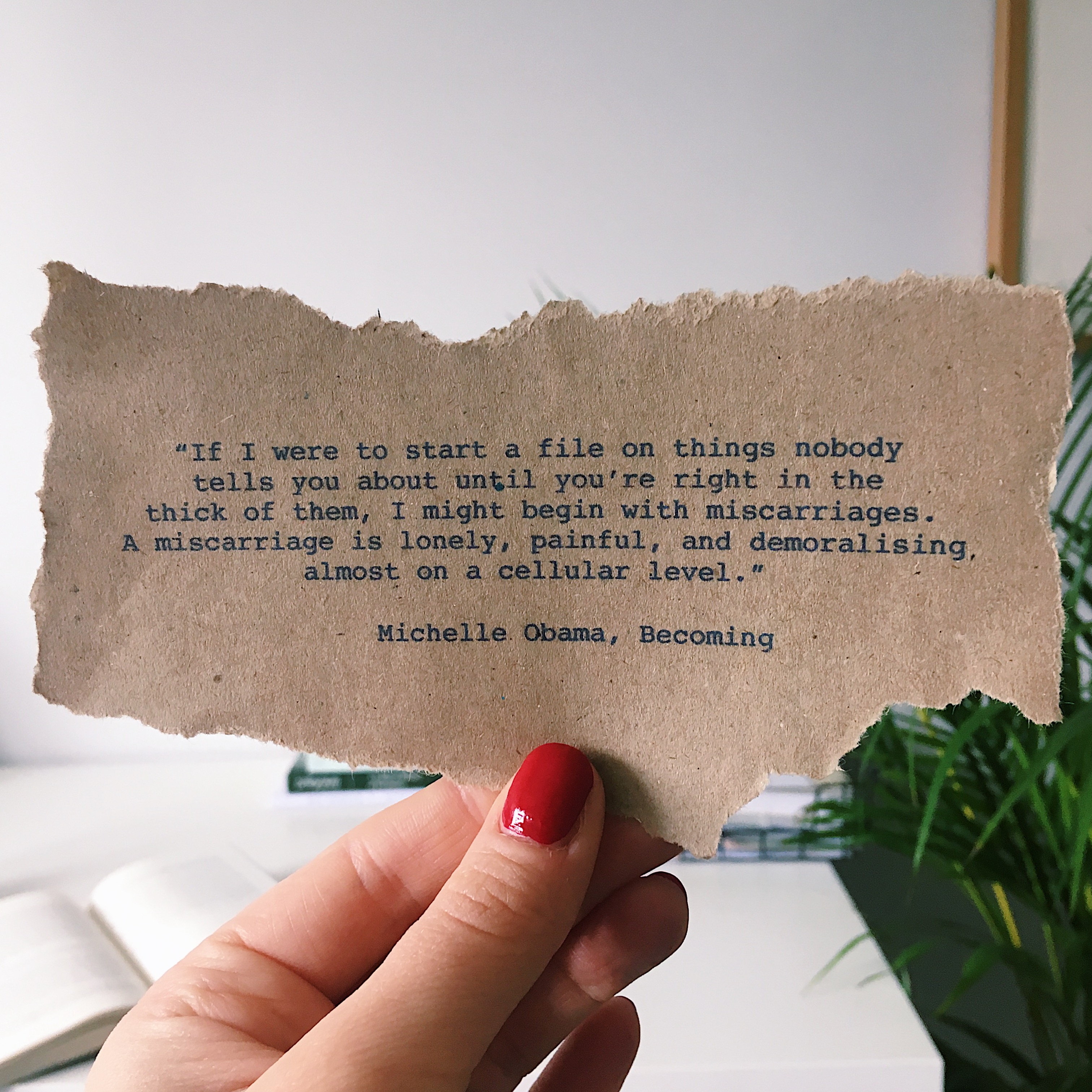I had a miscarriage.
Instead of trying to sugarcoat it, I will just say what it is—a miscarriage.
Fetal demise is actually what the doctor called it; I suppose that’s what they call it when an otherwise healthy baby, just, dies.
I sat in that emergency room for six hours with my husband, more annoyed than anything, really. I was there for reassurance that everything was fine. The spotting wasn’t that bad; I was just annoyed it wouldn’t go away.
Our baby was healthy—it had a heart rate of 160 at our ultrasound only a few weeks ago. The nurse made small talk, and we talked about how my son and the new baby would have birthdays close together. She gushed about how her children were the same age apart as mine would be.
I had hope in that moment; if the nurse was acting like everything was normal, why should I think any differently?
When the ultrasound technician finally came in, she showed us our baby on the screen. It grew! The little blueberry we had seen before had grown; that was all the proof we needed that our little peanut was okay.
Until, she couldn’t find the heartbeat.
Until, she drew in that breath, ever so slight, but it was enough to make me realize that our hopes and dreams would shatter.
Then, the new attending doctor for the shift awkwardly came in and introduced himself; all I heard next was “no heartbeat,” and “fetal demise.”
In movies when bad things happen, the camera gets out of focus and the world gets blurry. I thought that was for show. But, I felt as if the world was caving in around me. I felt the wave of emotions threaten to drag me out to sea. I watched myself drown.
We left shortly after the news, and I remember trying so hard not to cry. They asked if we had other children. I said, yes. How was I supposed to explain that this baby was my husband’s first biological child? How was I supposed to explain that my living child was not biologically his? Why make that distinction?
Why did the living child make up for the dead one?
They took my baby, but they weren’t going to take my dignity; I was not going to leave the ER crying. I didn’t want anyone’s pity. I still don’t.
I didn’t realize how normal it was to grieve a miscarriage. When this happens in movies or shows, it’s rushed—never talked about for long.
I grieve the loss of this child like the loss of any person who has died. In some respects, it’s harder: I don’t have any pictures or tangible evidence that this person even existed.
All I have are the leftover pregnancy symptoms that I will cherish until they disappear. The only lasting thing that proves my child was, is a tiny blueberry ultrasound picture. That has to be enough.
My hope for this is not to have your pity. I want the discussion of miscarriage to be normalized. 1:4. One in four women experience a miscarriage, one in four.
The amount of love we have received and messages from people who have had similar experiences is amazing; but it also made me realize that no one talks about a miscarriage—it gets danced around, sugarcoated.
It’s time to end the stigma.
It’s time to normalize talking about miscarriage. There is no right or wrong way to feel after having a miscarriage, but we need to give space for people to feel how they feel and to help empower the women who feel the need to talk about it. That’s me.
I am 1:4, and I won’t pretend it didn’t happen.
I had a miscarriage.


 Share on bsky
Share on bsky





Read 1 comment and reply